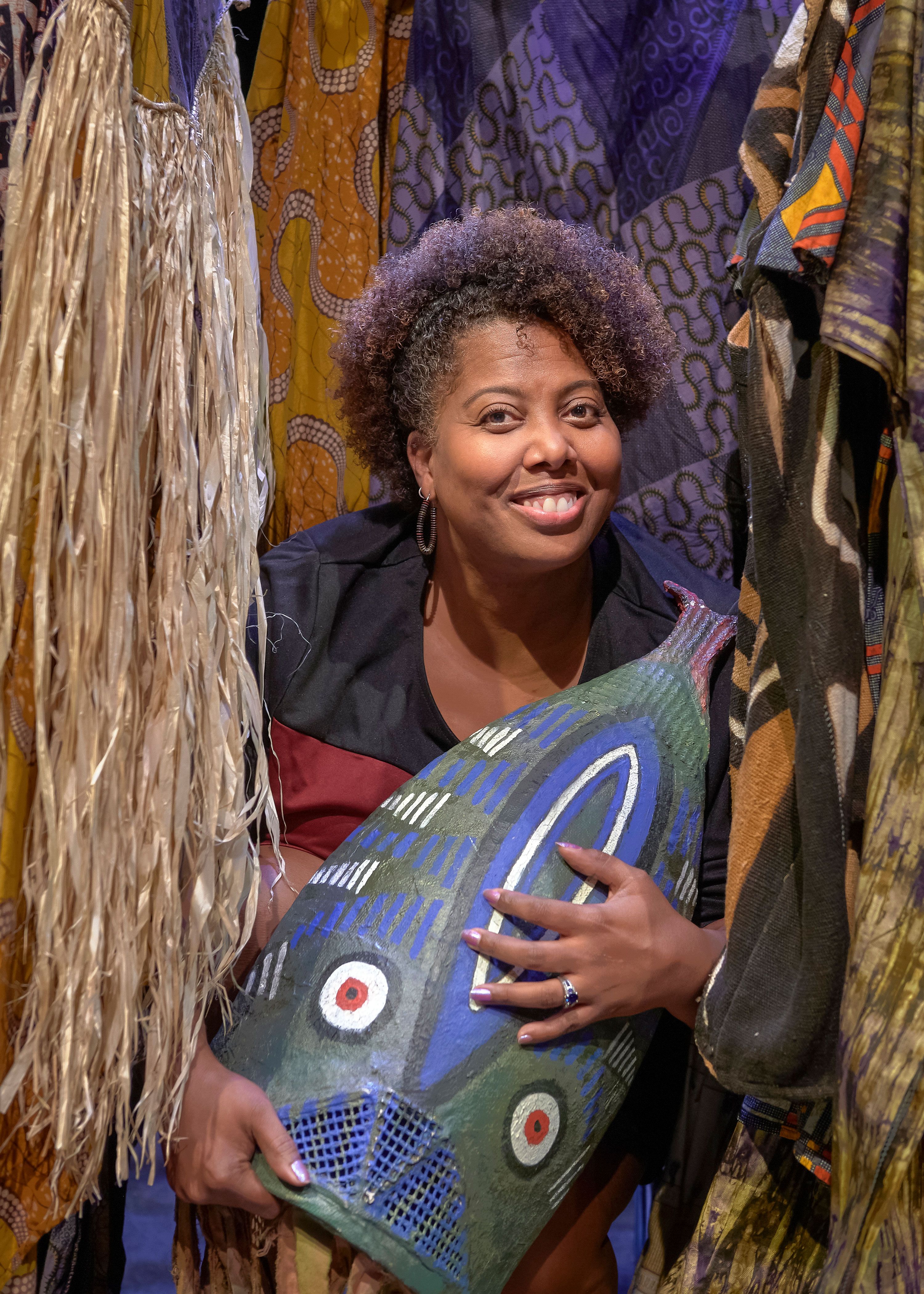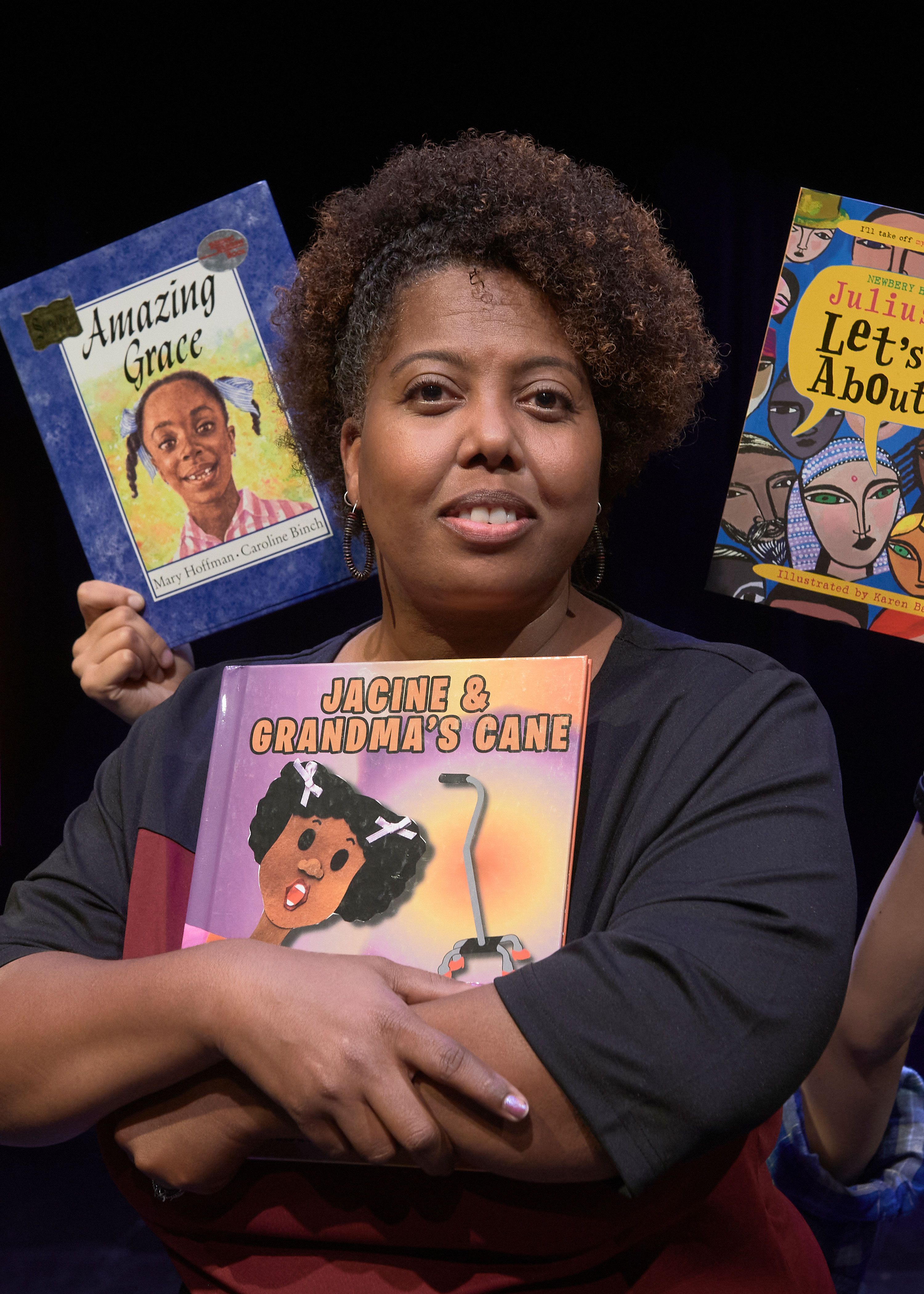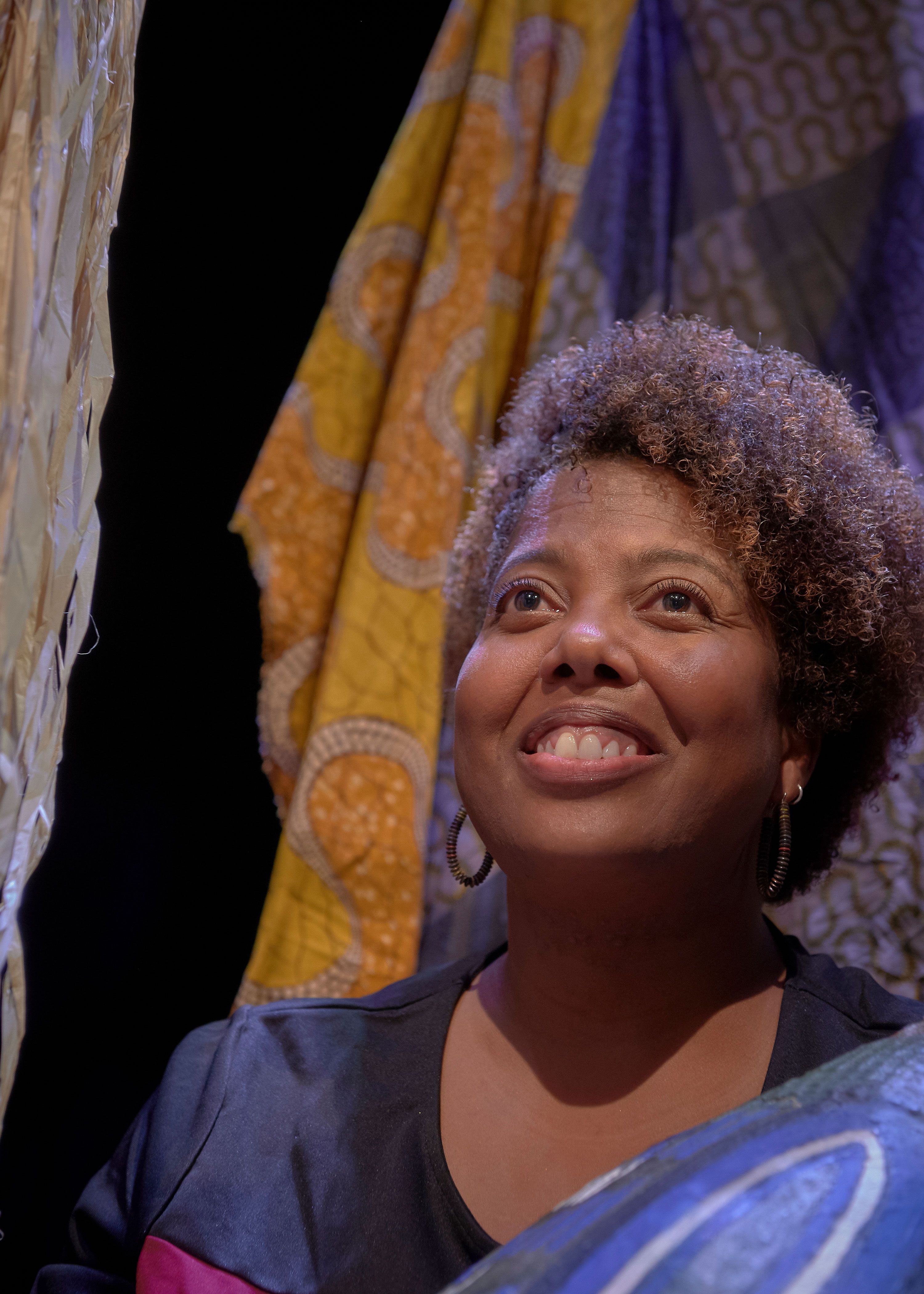Theater courses through Professor Natalie Sowell’s blood.
“Both my mom and my family were doing theater when I was really small,” she says. “My mom taught theater classes – I was in a youth theater group. I don’t really remember ever not doing theater. It’s always been a part of the fabric of our lives.”
In April, Sowell was named the new director of the School of Theatre, marking her return to UNCG after almost 20 years. In 2000, she attended the University for her MFA in theater for youth.
Sowell says she felt comfortable coming back to the minority-serving institution because she knew the administration would support the larger goals of equity and justice that run through her work.
“Being anti-racist is important to me,” Sowell says. “I looked at the job advertisement, and it looked like the School of Theatre was clear about moving in that direction.”
From directing plays centering often marginalized identities to performing as an African and African American folktale storyteller, and through residencies and workshops across the world, she has always been rooted in justice work.
A trained Theatre of the Oppressed practitioner, Sowell believes in the power of theater to create change, both on small and large scales. The practice’s participatory methods, she says, unpack concepts like microaggressions, racism, and gender and sexual orientation. She’s applied them in settings ranging from a Massachusetts jail to a Nigerian secondary school.
“It’s a matter of being active,” Sowell says. “Theatre of the Oppressed makes one come up with solutions and come up with how to enact them. To me, that’s essential. To sit together and to step into the shoes of those with challenges and then collectively imagine and dialogue with what’s possible.”
Currently arts ambassador for Massachusetts’ Department of Secondary and Elementary Education, Sowell also illustrates children’s books and consults on the Doors to the World project, which promotes the use of global children’s lit in the classroom. She’s passionate about diversity – “representation matters.” This work, she says, is about empowering young people of color.
“To feel confident in your voice and to be able to articulate when you don’t feel seen – I think those things have to be taught when you’re young.”
And for those who are still striving to be heard, like many of the Black, Brown or LGBTQ+ students on campus, she hopes to act as an amplifier for their voices.
“I’m the first woman in this position in 100 years – and the first woman of color – so I think that the students are excited,” Sowell says. “Students have said to me, ‘We need someone who’s going to listen to us. We need someone who’s going to advocate for us.’… I will be able to build where they have already started and take us forward.”


